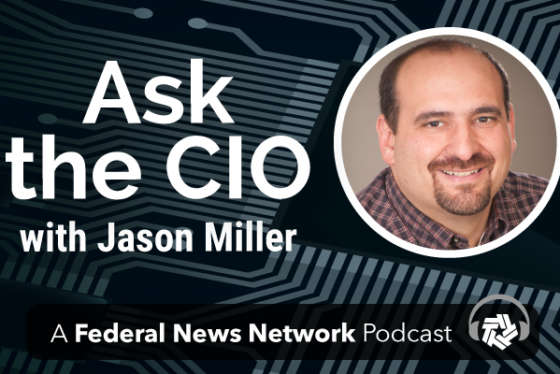Kundra’s impact not lost on next CIO
Vivek Kundra ends his tenure as the federal chief information officer Aug. 12. He was the driving force behind moving agencies to cloud computing, consolidating...
wfedstaff | June 4, 2015 9:46 am
By Jason Miller
Executive Editor
Federal News Radio
Vivek Kundra tenure as the federal chief information officer comes to an end Aug. 12. He’s been the driving force behind moving agencies to cloud computing, consolidating data centers and laying down the foundation to reform information technology.
But Kundra’s biggest impact may be less about specific technologies, but reminding the government that time and process do not need to be major barriers.
“Above everything, what markets value is execution,” Kundra said during a press briefing Aug. 4 at the White House. “People have a self image sometimes that is the problem, it’s psychological, it’s not real. They are not focused on execution or getting things done because there are 100 reasons why things won’t get done. You see that a lot in the federal government, especially when it comes to lawyers why ‘X’ can’t happen. But I think if you put shoulder to the wheel and your just heads down driving hard whether you are just launching a dashboard or trying to shut down data centers, things happen.”
He said federal employees get a bad rap sometimes because there isn’t that laser focus on a specific set of initiatives.
Kundra said laser focus coupled with ruthless execution delivers results. “That’s probably one of the most powerful lessons I learned and I think it’s true I the private sector as it is in the government,” he said.
The White House announced at the briefing that Steven VanRoekel will replace Kundra. VanRoekel started Aug. 5 and will overlap with Kundra for about a week.
VanRoekel is expected to continue many of the administration’s IT initiatives. He said at the briefing his time as managing director at the Federal Communications Commission showed him improving agency technology can work, and he expects to take those experiences into his new role.
“Vivek’s work was really the first step in a larger rework of government IT,” VanRoekel said. “It lays an amazing foundation on which we can build a new set of phenomenon. Looking at things like more in the open government space, looking at shared services across agencies, looking at procurement, purchase and IT investment models are something I really want to explore. This is all very early thinking of course. These are all things I’ve struggled with at the FCC, that we found creative ways to work in the context of government and I’m excited that can actually scale pretty broadly.”
Kundra’s work is detailed in the 25-point IT reform plan the White House issued in December.
He said the naivety about how the federal government’s procurement and project management processes worked helped him over the last two years to lay the foundation for the reforms.
As an example of that, Kundra pointed to his first hearing before the Senate Homeland Security and Governmental Affairs Committee when he promised Sen. Tom Carper (D-Del.) OMB would develop a dashboard to improve oversight over all major IT projects in 60 days.
“Literally, we spent from 7 p.m. to midnight with developers in the room, white boarding and we actually delivered it in 58 days,” he said. “When we’ve been pushing really hard across the board, it’s been hand-to-hand combat. You don’t just fire a grants strategy and hope good things happen. With the data center consolidation, for example, it’s literally sitting down at the agency, going through and asking the tough questions and making sure we are looking at the underlying assumptions.”
He said it’s important to involve all the appropriate people from deputy secretaries on down.
Kundra said there are two types of people that you meet across the federal government: those who believe all problems are solved only by more money and resources; and those who believe change can happen through innovation. He said the former type of employee is the one he pushed hard to change because their interest is in maintaining the status quo.
Kundra said the data center consolidation effort is example of having to push hard to get agencies to change.
“None of this stuff is easy and that is one of the reasons why for decades a lot of people had not addressed this,” he said. “It does take a lot of hard work. It does take people really, really focused on execution. The easy answer is to continue to propagate these 2,000 data centers.”
Another area Kundra pushed hard on was IT project management. His goal was not just to stop or turnaround poorly performing projects, but get the agency to receive functionality in months instead of years. Kundra introduced the TechStat sessions where executives from across the agency and OMB worked together to fix IT projects.
“If within six months all your are getting is more architectural documents or if all you are getting is more people showing up to your office, you’re not adding a lot of value,” he said. “We are scaling this model across every single agency and every single bureau.”
Kundra will move onto a five-month fellowship at Harvard University’s Kennedy School and the Berkman Center for Internet and Society.
RELATED STORIES:
New federal CIO VanRoekel’s goal is execution
Federal CIO Vivek Kundra resigns
(Copyright 2011 by FederalNewsRadio.com. All Rights Reserved.)
Copyright © 2025 Federal News Network. All rights reserved. This website is not intended for users located within the European Economic Area.






